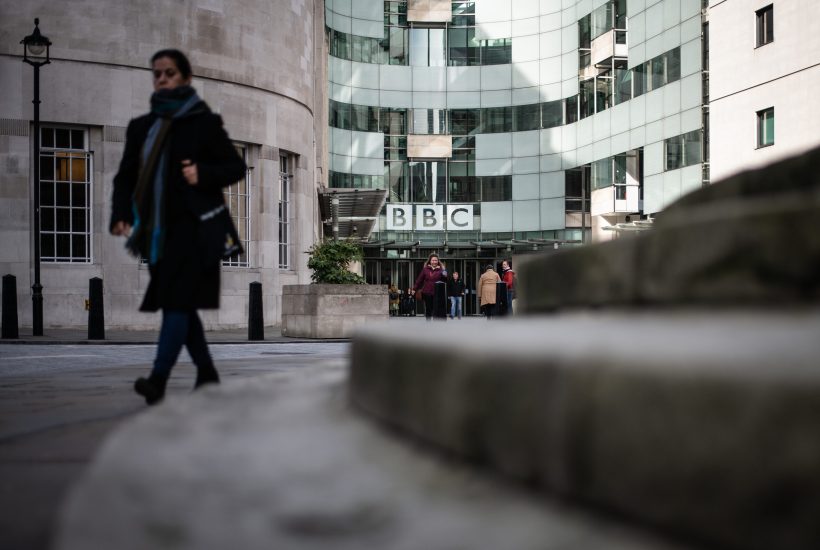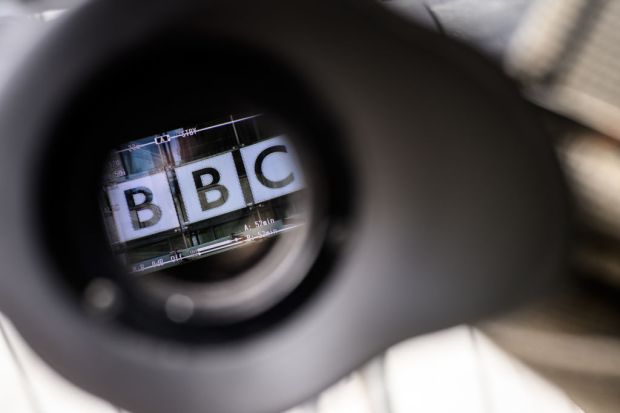The ‘pre-appointment hearings’ system overseen by parliament’s select committees doesn’t exactly set the heart racing; a pale imitation of the American system, where presidential nominees (to the Supreme Court for instance) are savaged by senators sitting as a kind of hanging jury, our version is generally bloodless. Certainly Richard Sharp, the government’s candidate for chairman of the BBC, who dutifully presented himself for cross-questioning last week, emerged with never a scratch on him.
Under the British system (unlike the American) the committee has no power of veto — the worst they can do is publish a disobliging report on the candidate and hope that will be sufficiently damaging to stop the appointment; that was never going to be Mr Sharp’s fate. This was an armour-plated candidate with impeccable establishment credentials and a manner that combines imperturbability with a certain watchful steeliness. He treated the MPs with a cool politeness and showed no rancour when they tried to rile him. Mr Sharp made millions as a director of Goldman Sachs and clearly learned his poker face in a high-stakes game. The politicians were no match.
Even so, it was difficult not to have some sympathy with the SNP’s John Nicolson when he complained about what he saw as a stitch-up. Mr Nicolson — a bit of a peacock who always manages to inject a note of sanctimony into his complaints — observed that here was a man who’d given £400,000 to the Tory party, who had no broadcasting experience, who had long-standing links to a centre-right think-tank; he was shocked! A glittering public appointment given to someone with close ties to the ruling regime — who’d have believed it? Except this is how it’s done, how it has always been done. It’s how Labour would have done it and (Mr Nicolson take note) it’s also how the SNP has done it in Scotland, appointing loyalists to every public post going. None of which makes it right — but at least it’s traditional. It is how our complicated mechanism of Establishment preferment works.
As to whether Mr Sharp deserves his elevation to the New Broadcasting House boardroom, it is hard to make a case against him given his predecessors. Mr Sharp is the seventh chairman since 2000 — some of whom have had a broadcasting background but most have not. There was one political big-hitter (Chris Patten) but — and here’s the thing — did any of them make a noticeable difference? The truth is that the chairman doesn’t much matter to us, the public. They guide corporate strategy but are themselves controlled by the BBC’s senior executives. They fly the flag at big media bunfights and are expected to be the Corporation’s number one cheerleader — but the chairman has no control over what the BBC broadcasts.
Even if that power was invested in the chairman it seems doubtful whether Mr Sharp would use it. True, he made some mild criticisms of Question Time audiences (too Remainery he thought) and he didn’t much like the lame political drama Roadkill which, true to its author David Hare’s prejudices, portrayed all Tories as lying scumbags. But in the main Mr Sharp seems quite content with the BBC. According to him, the Corporation’s coverage of Brexit was ‘incredibly balanced’, inducing, in me at least, a sense of incredulity. Where has he been the last 20 years?
Since the appointment of Tim Davie as director general the talk has all been of ‘reform’ and restoring the BBC’s reputation for impartiality as the first priority. Richard Sharp made mention of this in passing but put no special emphasis on it. Does he understand this critical issue? The BBC is in crisis because virtually half the population thinks it doesn’t represent them or their outlook — but that same half still has to pay the licence fee. Well-informed sources say that, despite the sacking of the BBC’s arch-critic Dominic Cummings, Boris Johnson is demanding reform. If this is true, and the BBC really is going to be forced to change, he must be convinced that Richard Sharp will be a reliable ally in the forthcoming battle. Notwithstanding public hearings, these appointments must surely be, in essence, private arrangements. Loyalty and common cause have always provided the pivot on which our politics turns.
How reform of the BBC now proceeds will only be in small part down to Mr Sharp, far more important will be the person who is appointed to head-up the BBC’s regulator Ofcom. The name on insider lips is Paul Dacre, ex-editor the Daily Mail and scourge of all things woke. The same well-informed sources say Dacre is the man Johnson wants in the role. If that happens, we’ll know the government means business.
Got something to add? Join the discussion and comment below.
Get 10 issues for just $10
Subscribe to The Spectator Australia today for the next 10 magazine issues, plus full online access, for just $10.




















Comments
Don't miss out
Join the conversation with other Spectator Australia readers. Subscribe to leave a comment.
SUBSCRIBEAlready a subscriber? Log in